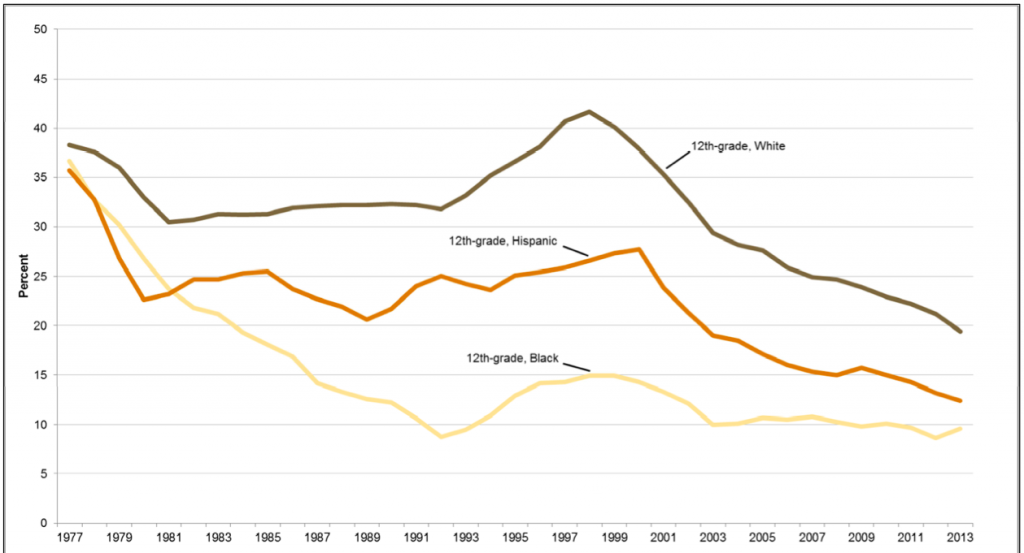Prevention Measures
Prevention Measures
Given the great hurdles we face in treating cancer, prevention may be the best approach. Today, the World Health Organization states that at least one-third of cancers are preventable, and many scientists believe that percentage may be far higher. In fact, a recent study claims two-thirds of cancer cases are due to environmental factors, primarily weight gain, lack of exercise, and smoking.
Addressing Obesity
Obesity is a major contributing factor to cancers of the esophagus, breast, endometrium, colon and rectum, kidney, pancreas, thyroid, and gallbladder. In some types of cancer, obesity is responsible for as many as 40% of cases, with the association being especially strong in colorectal cancer in men and endometrial cancer in women. For example, obese and overweight women have two to four times more risk of developing endometrial cancer than women of normal weight, according to the National Cancer Institute.
What We Can Do: With over two thirds of American adults overweight, and at least a third obese, according to the National Institutes of Health, the way we live our lives clearly has something to do with it. The National Cancer Institute recommends at least 30 minutes of exercise a day and keeping Body Mass Index (BMI) below 25.
Even if you are already overweight, losing weight will reduce cancer risk long-term. The National Cancer Institute and the American Cancer Society both conclude that losing weight will cut back the threat of cancer, but they warn it is better to stay slim throughout your life. The relationship between cancer and body weight is complex, and not yet completely understood. Like smoking, scientists believe that being overweight for any extended period of time can permanently affect lifelong risk for certain cancers.
Addressing Smoking
Rates of smoking have declined dramatically over past decades, but they still remain too high. In the U.S., 21% of men and 16% of women smoke and lung cancer is the single largest preventable cause of death in the United States. Compared to non-smokers, men who smoke are 23 times more likely to develop lung cancer; female smokers are 13 times more likely. Once diagnosed, fewer than 17% of people diagnosed with lung cancer survive beyond five years.
What We Can Do: Obviously, never picking up smoking is the best option, but even just regular exposure to secondhand smoke increases cancer risk by 20 to 30%. Current smokers who quit also have the power to drastically reduce their cancer risks. According to research, quitting smoking by age 30 reduces overall chance of smoking-related death by 90%, and the rate is 50% for those who quit at around 50 years old.
Fortunately, private and federal anti-smoking campaigns of the last twenty years have helped to drastically reduce smoking rates among U.S. teens.
Additional Factors
Beyond maintaining a healthy weight and avoiding smoking, doctors recommend individuals take further measures to reduce their cancer risks. The following recommendations are for everyone but they are particularly important for anyone from a higher-risk category — those who currently are or used to be smokers, individuals who are or have been obese and those with family members who have been diagnosed with cancer:
- Get cancer screenings beginning at age 20. Early detection is critical for increasing cancer survival rates. Unfortunately, many people do not follow recommended screening guidelines. Only 60% of Americans report being up-to-date with their recommended colon cancer screenings, according to the Colon Cancer Alliance. While the number is better for breast cancer, it is still too low. The CDC reported in 2010 that seven million American women did not receive their recommended mammograms.
- Avoid excessive UV exposure. Ultraviolet radiation, either from the sun or a tanning bed, can significantly increase skin cancer risk. While some exposure to the sun is healthy, overexposure increases risk, especially if you were a child. Repeated exposure as an adult is dangerous too, with indoor tanners 74% more likely to develop melanoma, according to the Skin Cancer Foundation.
- Maintain a healthy and balanced diet. The World Health Organization recommends a diet rich in fruits and vegetables as a potentially helpful way to reduce cancer risk. On the other hand, eating large amounts of red meat, preserved meats, and salt may increase the risk of stomach and colorectal cancers. Evidence also shows that excess alcohol consumption to be a leading cause of some cancers, so drink in moderation.


